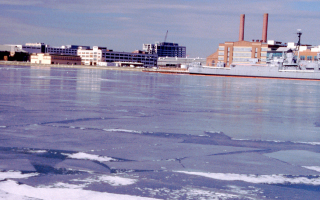
While a winter snow can lead to warm and cozy day at home, the de-icing materials used to keep traffic flowing can be negatively affecting water quality. This is especially true when the products are applied incorrectly or flow with runoff into nearby streams. Impacts are not isolated to the winter months. The road salt’s chloride can be stored in soil and groundwater only to be released into streams throughout the rest of the year. Chronic and acute chloride levels can harm both plant and animal life in and along streams. Additionally, high sodium content in sources of drinking water can lead to taste and odor challenges for water suppliers and be an issue for individuals restricted to a low-sodium diet.
To minimize the water quality impacts and maintain safe roads, some communities are exploring alternatives to road salts and changing application procedures around high quality and sensitive streams. Learn more about alternative products and application methods from the Potomac River Basin Drinking Water Source Protection Partnership and the Chesapeake Bay Program.
For more on information on increasing concentrations of chloride in U.S. streams, read “River chloride trends in snow-affected urban watersheds: increasing concentrations outpace urban growth rate and are common among all seasons,” from the U.S. Geological Survey. ICPRB works to address this issue through the Potomac River Basin Drinking Water Source Protection Partnership.
